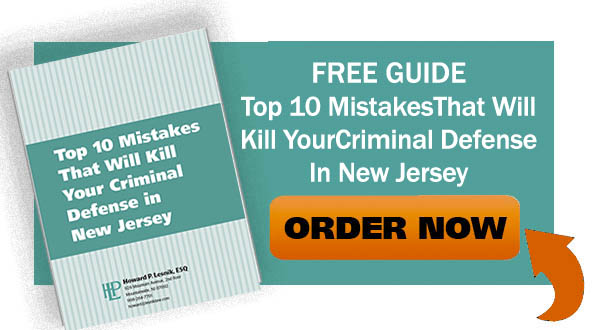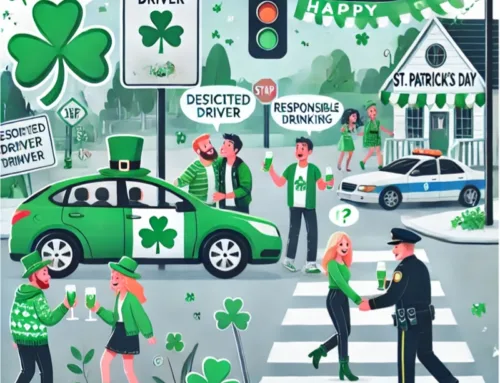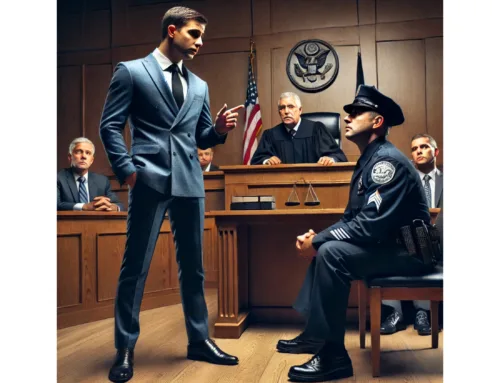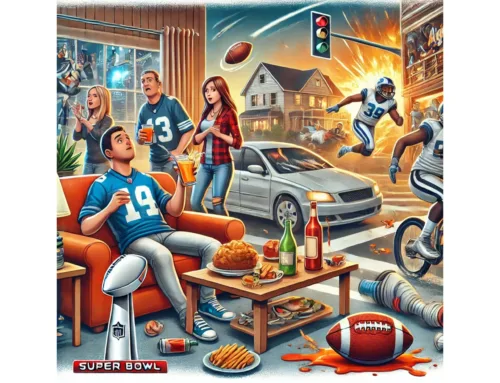The old adage that it isn’t getting any safer out there is true in terms of road safety – in fact, since 2020, automotive fatalities have been on an upswing nationwide. This has resulted in increased enforcement efforts aimed at curtailing dangerous driving behaviors, including drunk driving. With these heightened enforcement campaigns, it’s important for New Jersey drivers to understand what the laws are, the rights they have, and what they can expect if they find themselves stopped by police on suspicion of DWI. In particular, many people may not realize the consequences of refusing a breathalyzer test.

.
This is an easy mistake to make; some people assume that refusing a breath test is like refusing to answer questions without an attorney present or is part of the constitutional protection against self-incrimination. However, under New Jersey state law (N.J.S.A. 39:4-50.4a), refusing to submit to a breath test is a criminal act in itself, and may be taken as an admission that you were driving drunk. New Jersey has “implied consent” driving laws, meaning that – just as any motorist driving in the state implicitly agrees to obey New Jersey traffic laws, those motorists also implicitly agree to provide breath samples if they are suspected of driving while intoxicated.
What is Refusal?
Obviously, outright stating “No, I won’t submit to the test” or similar words of rejection constitutes refusal to take a breathalyzer test, but other responses or actions may legally be interpreted as refusing to take the test.
- Although police may inform you that you have a “right to remain silent,” that right does not apply to the question of whether you will consent to the breathalyzer. Silence will be interpreted as refusal; an active, assertive response is required.
- Conditional Agreement. The breathalyzer is not a negotiating tool; if you try to make your consent contingent on some other event or concession, like being allowed to make a phone call, use the restroom, talk to your lawyer, etc., this will be interpreted as refusal.
- Any attempts to delay the test or stall for time will be understood as refusal.
- Inadequate Samples. A successful breath test requires a long, continuous stream of air that provides sufficient air volume to analyze. Any deliberate attempt to manipulate the test or cause it to fail by blowing a short or weak breath sample may be deemed a refusal of the test.
The police are legally required to ensure that you understand the consequences of refusing to submit to a breathalyzer test, and that refusing the test is illegal. You will be expected to sign a form indicating that you understand the legal charge that will be brought against you for failing to comply. A failure by police to explain the legal consequences of refusal may provide your attorney with an easy way to fight the charge.
The legal penalties for refusing to submit to a chemical breath test are significant and escalate with subsequent offenses after the first. If the offense occurs on school property, the value of the fines and length of license suspension are even greater than what is listed here.
First Offense:
- A fine ranging from $300 to $500, plus an additional $100 for the Drunk Driving Enforcement Fund.
- Suspension of driver’s license for a period lasting between 7 months and 1 year. You can obtain a restricted license once you provide NJ Motor Vehicle Commission proof of installation of an Ignition Interlock Device.
- Mandatory completion of 12 hours of education from the Intoxicated Driver’s Resource Center (IDRC).
- Installation of an ignition interlock device (IID) on the defendant’s registered/primary vehicle for a period of 9 to 15 months after driving privileges resume.
Second Offense:
- A fine ranging from $500 to $1000, plus an additional $100 for the Drunk Driving Enforcement Fund.
- Suspension of driver’s license for 2 years.
- Referral to IDRC
- IID installed on vehicle for 2-3 years after driving privileges resume.
- Mandatory community service as well as mandatory county jail sentence of 2 to 90 days.
Third Offense:
- A fine of $1000, plus an additional $100 for the Drunk Driving Enforcement Fund.
- Suspension of driver’s license for 8-10 years.
- Referral to IDRC, with additional counseling possibly required.
- IID installed on vehicle for 2-3 years after driving privileges resume.
- Mandatory 180-day county jail sentence.
While New Jersey motorists do not have the right to refuse a breathalyzer test, police cannot simply pull over drivers at random to test them. There must first be a legitimate reason for the traffic stop, in the form of some motor vehicle violation committed by the driver. This may be anything from reckless driving or speeding to a broken taillight or failure to use a turn signal. The police must also have probable cause to test for drunk driving, generally by observing symptoms of intoxication and then performing field sobriety tests (including walk-and-turn, horizontal gaze nystagmus, and the one leg stand). If you pass these sobriety tests, if they were incorrectly administered, or if the arresting officer cannot articulate a legal reason for the traffic stop, your attorney may be able to have the refusal charges dismissed.
Contact Howard P. Lesnik, Esq. Immediately
I am a New Jersey criminal trial attorney board certified by the NJ Supreme Court. New Jersey’s DWI laws are extremely complex. Anyone who is charged with a SERIOUS court case needs to have an experienced criminal defense attorney. If you are a family member were issued a ticket for DWI or Refusal in New Jersey, contact me immediately so I can review your case and advise you as to all possible avenues to make sure that you are properly represented. Please contact me now by email, by phoning 908.264.7701, or by completing the form to the right to schedule your complimentary 30-minute strategy session.







